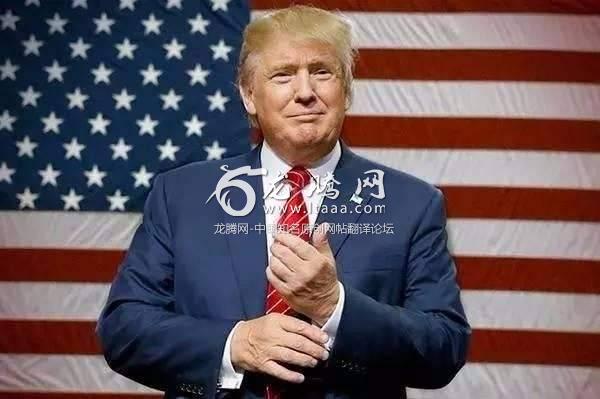国家安全战略和中国挑战 [美国媒体]
今天发布的“国家安全战略”表明唐纳德·特朗普自上任以来面对现实世界对其世界观进行了部分校正。所以其中有些内容似乎不像他的观点,而有些内容为了让朋友和盟友安心而太像他。实际上最初版本的国家安全战略文件几乎总是代表着从竞选到执政的艰难过度......
The NSS and the China Challenge
国家安全战略和中国挑战
MikeGreen
Foreign Policy Magazine•December 19, 2017
Today’s release of the National SecurityStrategy (NSS) represents a partial calibration of Donald Trump’s worldviewwith the real world he has encountered since becoming president. As such, therewill be elements that simply do not sound like him, and elements that sound fartoo much like him for friends and allies to be comfortable. The reality is thatinitial NSS documents almost always do represent an awkward transition fromcampaigning to governing. As such, they are transitional — important, but notthe last word on U.S.strategy. Indeed, the administration’s policy on human rights, trade, andmultilateral institutions may all look very different in a few years’ time fromwhat is articulated in today’s NSS. However, there is one element in this NSSthat represents a clear departure from the past and may well inform Americanstrategic thinking well into the future: the emphasis on great powercompetition with China.
今天发布的“国家安全战略”表明唐纳德·特朗普自上任以来面对现实世界对其世界观进行了部分校正。所以其中有些内容似乎不像他的观点,而有些内容为了让朋友和盟友安心而太像他。实际上最初版本的国家安全战略文件几乎总是代表着从竞选到执政的艰难过度。因此,它们是过渡性的 -重要,但不是美国战略的最终版本。实际上,未来几年中政府关于人权、贸易和多边机构的政策可能与现在的国家安全战略文件中阐述的完全不同。然而,这份国家安全战略文件中有一项内容表明了与过去的明显背离,并且很好的传递了美国关于未来的战略思想:强调与中国的强力竞争。
Every president’s first NSS since the endof the Cold War has been premised somehow on great power condominium. George H.W. Bush’s March 1990 NSSargued that the Cold War would be followed by“multipolarity and interdependence.” Bill Clinton’s first NSS anticipated a strategy of “enlargement andengagement” in which major powers would come together to help reduce the risksand burdens of American leadership. George W. Bush’s first NSS in the wake of 9-11, argued that “the world’sgreat powers find ourselves on the same side.” And Barack Obama’s first NSS highlighted the promise of moving beyondgeopolitics as the United Statesengaged Chinaon transnational challenges such as climate change.
自冷战结束以来,每位总统的第一份国家安全战略报告都是以某种方式的强国共同管理为前提。乔治·布什(老布什)于1990年3月发布的国家安全战略报告认为冷战之后将会是“多极化和相互依赖”。 比尔·克林顿的第一份战略报告预告了“扩大和参与”战略,在这个战略中主要强国将一起帮助美国来降低领导地位的风险和负担。乔治·W·布什(小布什)在911之后的第一份战略报告认为“世界主要强国面对着共同的敌人”。巴拉克·奥巴马的第一份战略报告强调了美国和中国在面对诸如气候变化这样的跨国挑战时,超越地缘政治行动的承诺。
Almost every one of these presidents foundtheir vision for great power condominium somehow foiled by China: George H. W.Bush was undercut by Tiananmen; Clinton had to respond to the 1995-1996 Taiwancrisis by strengthening the U.S.-Japan alliance; and Obama woke up to find thePeoples Liberation Army building airbases on coral reefs across the South ChinaSea. Only George W. Bush managed to sustain a consistent China policy,but the 2008 financial crisis shook its foundation at the end of his term.Trump’s NSS is the first to start out anticipating the China challenge — aneasier intellectual leap in the wake of Xi Jinping’s triumphalist 19th PartyCongress in October 2017 to be sure — but one that will likely shape Americanstrategic thinking for some time to come.
这几位总统几乎都发现强国共同治理的愿景都被中国以某种方式挫败:克林顿不得不以强化美日同盟来应对1995-1996年的台海危机;奥巴马醒来时发现中国人民解放军正在中国南海的岛礁上建设空军基地。只有小布什尽力维持着一贯的中国政策,但是它的基础被2008年他任期结束时的金融危机所动摇。特朗普的国家安全战略报告首次开始预测中国的挑战 — 在2017年10月中国共产党成功召开第19次全国代表大会后,可以肯定的是,这是一个更轻易的认知飞跃 — 但很可能将塑造美国未来一段时间的战略思想。
Yet while the NSS identification ofgreat-power competition will likely endure, the ways and means associated withthat strategy remain flawed or incomplete and will have to evolve or change.The first shortcoming in means is implicit in the third of the four NSS pillars,“peace through strength,” which emphasizes shifting towards a strategy ofdenial vis-à-vis adversaries. This is an expensive (if necessary) proposition,particularly given China’sgrowing military reach in the Western Pacific. The NSS addresses that shortcomingby promising more predictable defense spending. It will be critical that theadministration carry this message to Congress.
尽管国家安全战略报告认为强国之间的竞争很可能将继续下去,但是与此战略相关的方式和方法仍然存在缺陷和不完善,不得不进行改善和调整。第一个缺点暗含于国家安全战略四个支柱中的第三个“通过力量实现和平”,强调转为否定对手的战略。这是一种昂贵(如果必要)的提议,尤其是考虑到中国上升的军事力量已经影响了西太平洋。国家安全战略报告通过承诺更可预测的国防支出解决了这个缺点。政府将这一信息传递给国会将会是非常关键的。
The second shortcoming in ways and meansis the utter lack of a coherent trade strategy. The NSS identifies the problemposed by China’saggressive economic policies, but the solution set is far too unilateral. Theadministration will rightly roll out a series of punitive duties against China for forced technology transfer andintellectual property violations in the coming months, and then Beijing will retaliate against major U.S. firms.What then?
第二个缺点是极其缺乏一致的贸易战略。国家安全战略报告认为这个问题是由中国咄咄逼人的经济政策引起的,但是解决方案太过于单方面化。政府在接下来几个月会适当的推出一系列惩罚性责任来反制中国强制性的技术转移和侵犯知识产权,然后北京将对美国主要公司进行报复。那么接下来呢?
The answer has to be concerted pressure onChinain conjunction with our allies. There was a hint of what is possible in the Japaneseand EU statements of support for U.S.actions against China under Section 301 last week,but much more collective effort is needed. It was bad enough that theadministration withdrew from the Trans-Pacific Partnership (TPP) and took the United States out of the rule-making game in Asia. Now the president risks being even further isolatedand outflanked by China as he puts NAFTA, KORUS, and the WTO itself at risk forno appreciable gain for American exporters (quite the opposite, since the lossof market share would be a blow, especially for U.S. farmers and cattlemen).
答案是要和我们的盟友一起协商对中国施加压力。在上周日本和欧盟支持美国对中国进行301条款调查的声明中,暗示了这种可能性,但需要更多的共同努力。政府退出跨太平洋伙伴关系(TPP),使美国被排除出在亚洲制定规则的游戏已经足够糟糕了。现在,美国的出口商没有得到可观收益(恰恰相反,因为失去市场份额将是一个打击,尤其是对美国农场主和牧场主)的情况下,总统将北大西洋自贸协定(NAFTA)、美韩自贸协定(KORUS)和世界贸易组织(WTO)自身置于风险之中,而更大的风险是被中国孤立和包抄。
The third problem relates to human rightsand democracy. The administration has been strong in support of these universalnorms in Venezuela and Cuba comparedwith Obama, but the current approach evokes former Amb. JeaneKirkpatrick’s “dictators and double standards”argument at the beginning of the Reagan administration. It iseasy to coddle authoritarians in your ranks while going all out againstauthoritarians in your adversary’s camp, but eventual the authoritarians inyour camp will become sources of weakness and risk. By the mid-1980s,Kirkpatrick’s approach gave way to a far more nuanced and strategic approachwhen Secretary of State George Schultz convinced Reagan he had to pressureFerdinand Marcos in the Philippines and Chun Doo-hwan in South Korea to movetowards democracy, lest those allies become too vulnerable to revolution andupheaval. President Rodrigo Duterte in the Philippines is one of severalauthoritarian figures who Trump has chosen not to pressure, but hisadministration will have to shift from Kirkpatrick to Schultz in order to be onthe right side of history.
第三个问题涉及到人权和民主。相比于奥巴马,政府一直在委内瑞拉和古巴坚定支持这些普世准则,但是这种方式引起了曾在里根政府初期任大使的Jeane Kirkpatrick“独裁者和双重标准”的争论。当全力反对对手阵营中的独裁主义者时,自己阵营中也很容易出现独裁主义者,但是最终自己阵营中的独裁主义者将成为弱点和风险的根源。到上世纪80年代中期,Kirkpatrick的方法被更为细致和战略性的方式取代,当时国务卿乔治·舒尔茨说服里根迫使菲律宾的马克斯和韩国的全斗焕走向民主,以免这些盟友太脆弱而引发革命和动荡。菲律宾总统杜特尔特是特朗普选择不进行施压的独裁主义者之一,但是为了站在历史的正确一边,他的政府将不得不从Kirkpatrick转向舒尔茨方式。
Every NSS has contradictions in the articulation of ends,ways, and means. This one is no different. The strategy will have to evolve.National Security Advisor H.R. McMaster and the document’s principle drafter,Nadia Shadlow, have helped the president formulate the beginnings of a coherentstrategy. It needs work, but they deserve credit for producing a document ascohesive as any of its predecessors and in many respects far more honest aboutthe challenges. Doing so in the first year of administration is a first,particularly in an administration led by the most disruptive president inmodern history.
每份国家安全战略报告的方式和方法上都最终出现矛盾。这一份也是,战略将不得不改进。国家安全顾问麦克马斯特和这份报告原则上的起草人纳迪亚,已经帮助总统构建了连贯战略的开端。它需要有效,但他们值得信任,因为他们构建了像各位前任一样具有内在凝聚力的战略,并且在许多方面更加坦诚的面对挑战。在执政的第一年这样做是空前的,尤其是在现代历史上最具破坏性的总统领导下的政府。
版权声明
我们致力于传递世界各地老百姓最真实、最直接、最详尽的对中国的看法
【版权与免责声明】如发现内容存在版权问题,烦请提供相关信息发邮件,
我们将及时沟通与处理。本站内容除非来源注明五毛网,否则均为网友转载,涉及言论、版权与本站无关。
本文仅代表作者观点,不代表本站立场。
本文来自网络,如有侵权及时联系本网站。
图文文章RECOMMEND
热门文章HOT NEWS
-
1
Why do most people who have a positive view of China have been to ...
- 2
- 3
- 4
- 5
- 6
- 7
- 8
- 9
- 10
推荐文章HOT NEWS
-
1
Why do most people who have a positive view of China have been to ...
- 2
- 3
- 4
- 5
- 6
- 7
- 8
- 9
- 10











